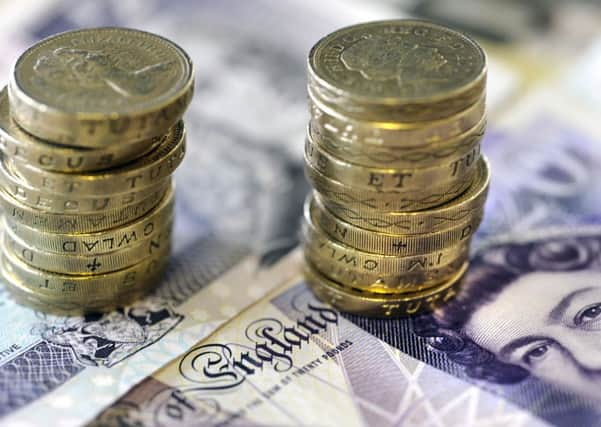Jane Bradley: Borrowing money from friends


I realised after we got into the taxi, however, that I was short on cash. I scrabbled around in my coat pocket and came up with £1.65, in an embarrassing mixture of mainly ten pence pieces and coppers, which barely scratched the surface of the fare.
I felt terrible. I only get to see these friends once or twice a year at most, so it will be a while before I can pay them back – and asking for their bank details to transfer a few quid seemed pedantic.
Advertisement
Hide AdAdvertisement
Hide AdThey, of course, were lovely about it, but I couldn’t help feeling, as I left, as if I’d shortchanged them. Leaving your friends out of pocket is never acceptable. Or is it?
One study, carried out by Barclaycard a couple of years ago, claimed that there is around £2 billion outstanding in unpaid “mate debt”, where people have either forgotten about – or are intentionally avoiding – paying their friends back. That’s a lot of minor debts.
Most come from the odd fiver borrowed here and there when out and about; the occasional tenner lent to tide someone over before payday; or the forgotten restaurant bill when a credit card wouldn’t work and someone forked out the full amount, theoretically to be repaid at a later date.
On top of that is probably billions more owed from drinks bought and not returned. For people don’t count alcohol.
If my friends had ended up paying £2 or £3 more in the pub for my drinks than for their own – if, I’d say, chosen a fancier glass of wine, or a pricey craft beer when it was their round – I wouldn’t have been as worried that I had failed to pay my share.
But why? The outcome – that they now have a couple of quid less to spend on themselves than they otherwise would have done had I not been so thoughtless – would have been the same. Strangely, alcohol is one of the few purchases where it is consistently accepted behaviour to leave a friend out of pocket. We all do it. We think we don’t because of the strict social convention of the British rounds culture, but that is exactly where the problem lies.
You have to buy a round when it is your turn, but what that round is, or how many it caters for, can vary widely.
Thinking about it, I’m probably owed quite a lot – the reason being that I always only drink half pints of beer.
Advertisement
Hide AdAdvertisement
Hide AdStrange, I know, but I do. The main reason is that I am quite small and not only do I find a whole pint quite unwieldy to move repetitively from table to mouth, but I think I look ridiculous: like a small child dressing up in mummy’s high heels – or a red-faced drunk clutching a giant stein of ale at an Oktoberfest rip-off.
I’ve also never been a big drinker – and if I tried to match friends and colleagues pint for pint, someone would have to carry me home.
A few years ago, I regularly shared after-work drinks with a group of colleagues who were mainly men. They all drank pints and at a prodigious rate. I continued with my half pint drinking, often skipping an order on at least every other trip to the bar – but always chipped in with my share of rounds, as to fail to do so would be social suicide.
Over a course of a typical night out, I probably bought the equivalent of seven pints, but drank fewer than two. I probably lost out on hundreds of pounds. At the time, it never occurred to me. I’m sure it never occurred to them either.
Similarly, if one pub round is £20 more expensive than the next – because a large proportion of the group leave after one drink or because everyone starts the night on posh bubbly before moving on to house white – no-one bats an eyelid. But you borrowed a £20 note from a pal because your bank card had stopped working, it would be unacceptable not to pay it back as soon as was humanly possible.
Perhaps if the pint instead of the pound became the national currency, the problem would resolve itself. One pint for a cup of coffee. Half a pint for a bus fare. The £2bn debt would disappear in no time.
FOLLOW US
SCOTSMAN TABLET AND MOBILE APPS